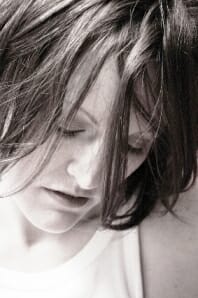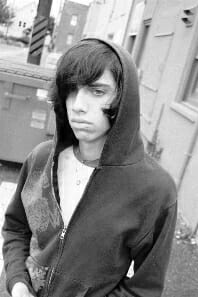This bipolar depression test provides instant and personalized self scoring.

Note this is a bipolar depression quiz for screening purposes and obviously cannot provide a conclusive diagnosis, as it is a test taken on the Internet.
This test screens you to see if there is a POSSIBILITY you have symptoms of
bipolar depression. A positive screen means you should discuss your results with a psychiatrist who is an expert in mood disorders in order to obtain a diagnosis.
Promise you will discuss your test with an expert? Ok, lets begin:
Question 1: Do you experience extreme mood changes – going from extremely happy to extremely sad?
Answer: Yes or Sometimes or No
Question 2: Has anyone in your family (blood relatives such as parents, grandparents, children, siblings, uncles and aunts) been diagnosed with bipolar disorder?
Answer: Yes or No
Question 3: Do you experience periods where you feel any of the following. Check all that apply:
- Persistent sad, anxious or “empty” feelings
- Feelings of hopelessness and/or pessimism
- Feelings of guilt, worthlessness and/or helplessness
- Irritability, restlessness
- Loss of interest in activities or hobbies once pleasurable, including sex
- Fatigue and decreased energy
- Difficulty concentrating, remembering details and making decisions
- Insomnia, early–morning wakefulness, or excessive sleeping
- Overeating, or appetite loss
- Thoughts of suicide, suicide attempts
- Persistent aches or pains, headaches, cramps or digestive problems that do not ease even with treatment.
Question 4: Have you ever experienced any of these symptoms for a period of at least one week? Check all that apply:
- Elevated mood
- Euphoria
- Hyperactivity
- Excitement

- Overconfidence
- Grandiosity
- Extravagance
- Spending sprees
- Recklessness
- Delusions of grandeur
- Talking a lot
- Rapid speech
- Rapid movements
- Reduced need for sleep
- Increased appetite
- Excessive exercising
- Increased libido
- Increased use of alcohol
- Distractedness
- Aggression
- Excessive laughter
- Anger.
How to score your Bipolar Depression Test
Interpreting Question 1
Bipolar disorder has traditionally been known as manic-depressive illness because it is all about mood swings between highs / ups of mania and in some cases lows / downs of depression. BOTH extremes are usually present for a diagnosis of bipolar disorder; however, some people will experience only the manic highs/ups followed by a return to their normal or typical level of functioning.
Interpreting Question 2
Bipolar disorder runs in families and has a strong inherited / genetic component. In fact, one of the most important indicators of bipolarity that an expert will ask you about is a blood relation with a confirmed diagnosis.

Interpreting Question 3
Count how many of these you checked. Is it 5 or more during the same two week period? If so, you are screening positive for major depression. (Caution – the word here is “SCREEN”, not “diagnosis! This raises a possibility but does NOT provide you with a definitive answer.)
Interpreting Question 4
This last portion of the bipolar depression testis checking you for signs of bipolar mania. Remember, the difference between bipolar depression versus unipolar / major depression is that the person must have also experienced the symptoms of bipolar mania or hypomania. In other words, this is the final piece of your own personal bipolar disorder puzzle. Screening positive for these symptoms of mania, in combination with checking the depression symptoms previously discussed, shows the combination of BOTH mania AND depression
that characterizes bipolar disorder. If you screen positive for mania alone, this also characterizes Bipolar Disorder. Both scenarios suggest a positive screen on your bipolar depression test. Either continue with a further test (see below) or see a mental health expert, ideally a board certified psychiatrist if you are now ready to explore a professional diagnosis.
How to distinguish bipolar disorder from unipolar depression
Research indicates that there is a quick, simple and reliable clinical test you can use to further check the likelihood you many have bipolar depression, as opposed to “ordinary” (unipolar) depression.

(It is essential you clarify this as the antidepressant medications used to treat depression are not effective for treating bipolar disorder and can actually make the illness WORSE.)
The test to try next is called the Hypomania Checklist (HCL-32). How reliable is the HCL-32 in identifying bipolar disorder? Over 80%! (This is obviously not as good as 100%. However, NO bipolar test has 100% reliability. The HCL-32 IS more reliable than alternatives such as the Mood Disorder Questionnaire (MDQ), especially in detecting any signs of mania or hypomania that indicate bipolar disorder as opposed to depression.1
Finally, check an authoritative source for simple to understand but extremely powerful, useful information on bipolar symptoms and diagnosis.
References:
1https://www.psychologytoday.com/us/tests/health/bipolar-depression-test
 Medically reviewed by
Medically reviewed by